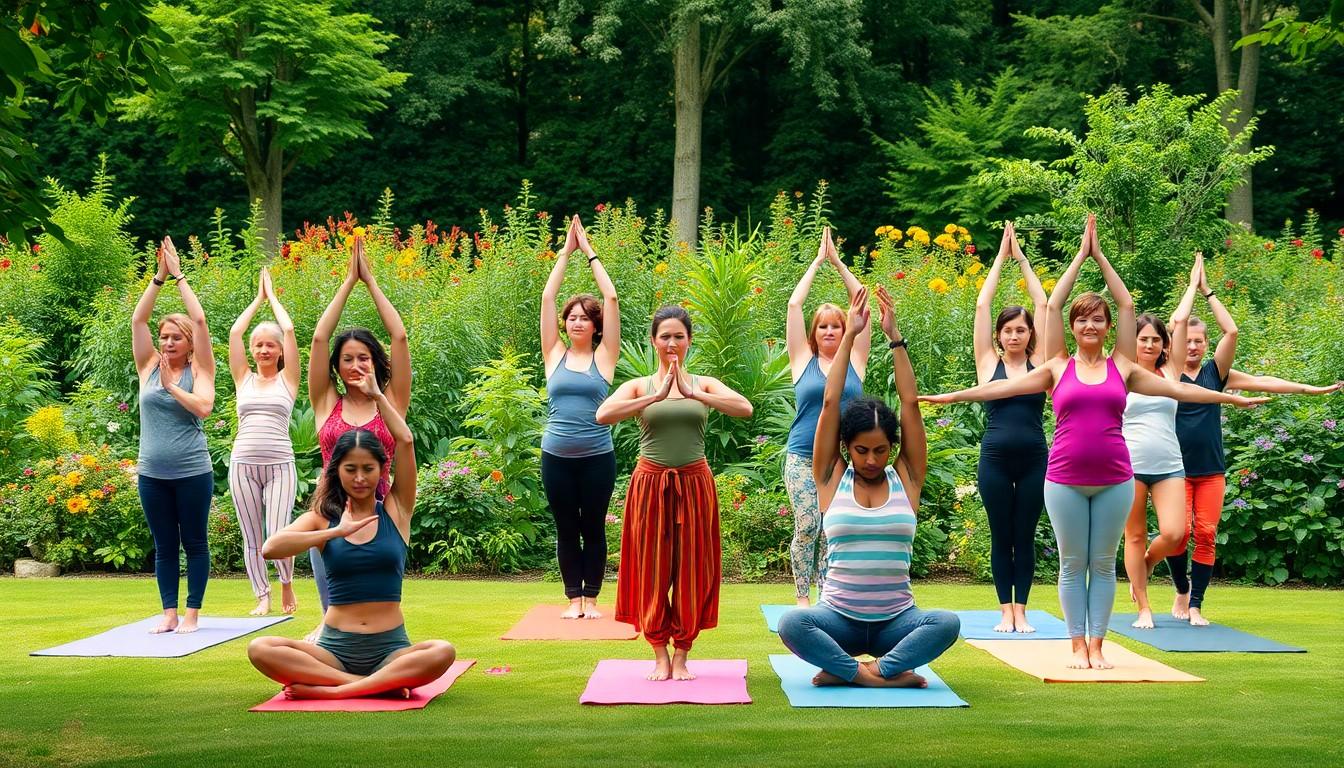In a world where stress is the new black and convenience often trumps well-being, holistic living might sound like a far-off dream or a trendy buzzword. But what if embracing a balanced lifestyle could be as easy as finding your favorite pair of sweatpants? This holistic living guide promises to transform the chaos of modern life into a harmonious symphony of health, happiness, and maybe even a little humor.
holistic living guide
Holistic living emphasizes the interconnectedness of body, mind, and spirit. This approach fosters an inclusive lifestyle, encouraging individuals to nurture all aspects of their well-being.
What Is Holistic Living?
Holistic living represents a philosophy that recognizes the entirety of an individual. This perspective considers physical, emotional, social, and spiritual health equally important. Adopting holistic living means individuals pursue balance and wellness in every aspect of life, rather than focusing solely on physical health. Engaging in practices like mindfulness, healthy eating, and community involvement fosters harmony. Ultimately, holistic living promotes overall well-being and satisfaction.
Core Principles of Holistic Living
Core principles of holistic living encompass several key concepts. First, individuals focus on prevention rather than merely treating ailments. They prioritize self-care practices, ensuring physical vitality. Second, fostering strong relationships with others supports emotional health. Third, connecting with nature enhances spiritual well-being. Fourth, setting intentions guides daily actions towards personal goals. Each principle works synergistically, reinforcing a balanced approach to life. Embracing these principles creates a foundation for a fulfilling, holistic lifestyle.
Benefits of Holistic Living

Holistic living offers multiple benefits, enhancing overall well-being and satisfaction. By integrating various aspects of health, individuals can experience profound improvements in their daily lives.
Physical Health Advantages
Physical health benefits manifest through improved nutrition and exercise routines. Engaging in a balanced diet supports optimal body function, while regular physical activity boosts energy levels and cardiovascular health. Adequate rest also plays a crucial role. Prioritizing quality sleep enhances recovery and revitalizes the entire system. Additionally, holistic practices often promote preventive care. Regular wellness check-ups identify potential health concerns early, allowing for timely intervention. These combined efforts lead to vibrant health and vitality.
Mental Health Benefits
Mental health advantages prominently arise from holistic living. Mindfulness practices, such as meditation and yoga, reduce stress and anxiety, fostering a calmer state of mind. These techniques help individuals connect with their emotions and increase self-awareness. Building strong social connections also enhances emotional well-being. Positive relationships provide support and reduce feelings of isolation. Moreover, engaging in creative pursuits can serve as a therapeutic outlet. Exploring hobbies and artistic activities brings joy and fulfillment, contributing to a healthier mindset.
Key Components of a Holistic Living Guide
Holistic living encompasses several vital components that contribute to overall well-being.
Nutrition and Diet
Nutrition plays a crucial role in holistic health. Eating whole, unprocessed foods nourishes the body and fuels daily activities. A balanced diet rich in fruits, vegetables, whole grains, and lean proteins enhances energy levels and improves immunity. Individuals often find that staying hydrated is equally important for maintaining optimal health. Focusing on mindful eating practices encourages awareness of hunger cues and fosters a deeper connection with food. Experimenting with plant-based meals can further support overall well-being and promote good digestion.
Mindfulness and Meditation
Mindfulness and meditation serve as powerful tools for mental clarity and emotional balance. Practicing mindfulness encourages individuals to stay present and appreciate the moment. Simple techniques, such as deep breathing or guided meditation, can significantly reduce stress and anxiety. Regular meditation cultivates self-awareness, allowing individuals to recognize their thoughts and emotions without judgment. This practice enhances emotional resilience and provides a sense of inner peace. Incorporating mindfulness into daily routines, such as through mindful walking or eating, further supports a holistic lifestyle.
Physical Activity
Physical activity strengthens the body and mind. Engaging in regular exercise boosts mood and energy levels while reducing the risk of chronic diseases. A variety of activities, such as walking, cycling, yoga, or dancing, cater to different preferences and fitness levels. Individuals often feel more motivated when they choose activities that they genuinely enjoy. Regular movement also encourages the release of endorphins, known as the body’s natural mood lifters. Setting realistic fitness goals helps maintain motivation and promote a long-term commitment to an active lifestyle.
Practical Tips for Implementing Holistic Practices
Embracing holistic practices entails integrating various elements into daily life. Below are actionable tips to promote a balanced and fulfilling lifestyle.
Creating a Balanced Daily Routine
Establish a consistent morning routine. Prioritize waking up at the same time each day to create stability. Incorporate mindful practices, such as meditation or journaling, to set intentions for the day. Schedule regular breaks throughout the day, ensuring time for relaxation and reflection. Evening rituals, like reading or stretching, can foster winding down before sleep. Balance work, hobbies, and social interactions, creating an environment that nurtures personal growth and well-being.
Integrating Nature and Environment
Connect with nature regularly. Spend at least 30 minutes outdoors each day, whether it’s walking, gardening, or simply enjoying fresh air. Choose plants for your living space, as they enhance air quality and contribute to mental clarity. Organize outdoor activities with friends or family, building stronger relationships while enjoying the environment. Use natural materials in home decor to create a calming atmosphere. Incorporate eco-friendly practices, like recycling and reducing waste, to promote sustainability and enhance overall well-being.
Embracing holistic living opens the door to a more balanced and fulfilling life. By nurturing the body, mind, and spirit, individuals can create a harmonious existence that promotes overall well-being. Incorporating simple practices into daily routines can lead to significant improvements in health and happiness.
As readers explore the principles of holistic living, they’ll find that small changes can yield profound benefits. Prioritizing self-care, fostering connections, and engaging with nature are just a few ways to enhance life’s quality. Ultimately, the journey toward holistic living is a personal one, filled with opportunities for growth and joy.

